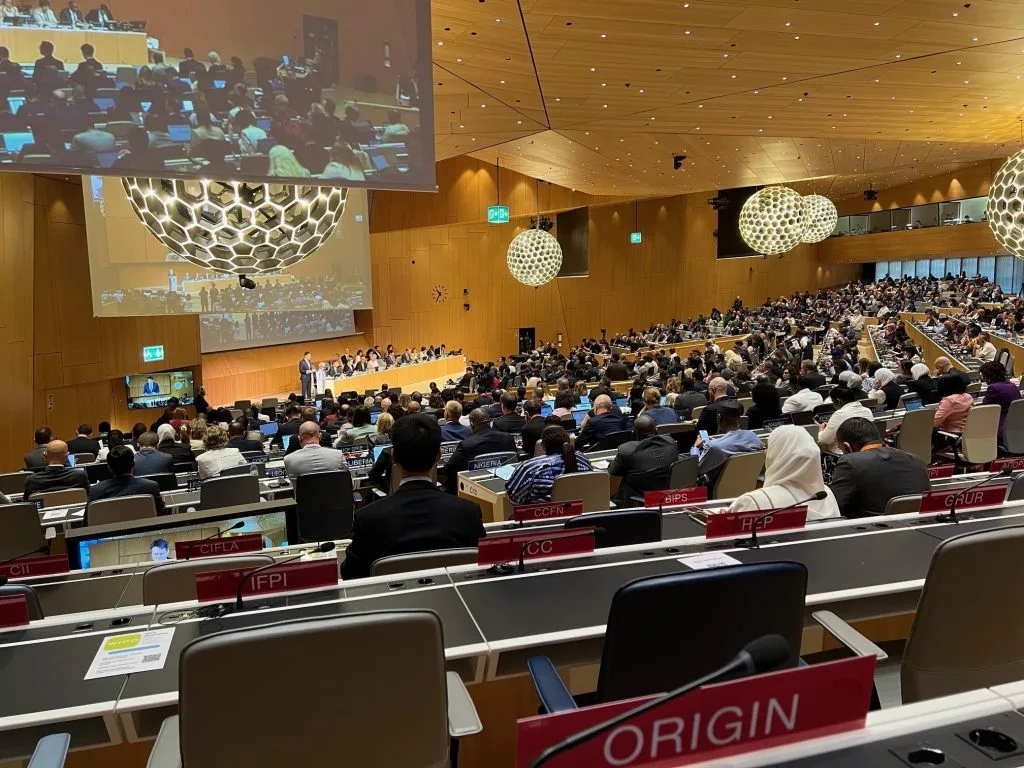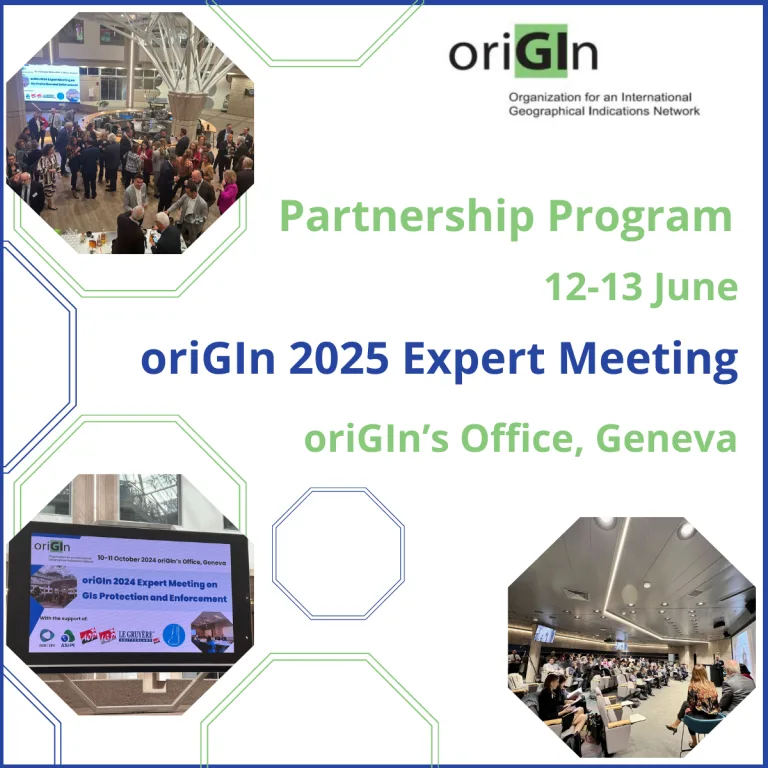
As in many other areas of international cooperation, Geneva has played a crucial role in shaping the principles and standards for protecting Intellectual Property (IP) since the 20th century. Geographical Indications (GIs) as part of the international IP family, are no exception.
In 1958, the Lisbon Agreement for the Protection of Appellations of Origin and their International Registration was adopted within the World Intellectual Property Organization (WIPO). The GI concept was officially introduced at the international level in 1994 through the TRIPS Agreement, concluded under the auspices of the World Trade Organization (WTO). In 2015, the Lisbon Agreement was modernized by adopting its Geneva Act on Appellations of Origin and Geographical Indications. The number of Contracting Parties has grown rapidly, covering currently 60 jurisdictions (including Switzerland). The WIPO Geneva Act represents a flexible international instrument for the protection of GIs, poised to become a global register facilitating their protection in foreign jurisdictions, and benefitting local producers and small and medium-sized enterprises (SMEs).
To better grasp global GI developments, in 2008, oriGIn – the global alliance of GI associations – moved its headquarters to Geneva. Since then, its membership has been in constant ascent, with 700 associations from 40 countries in 2025. In September 2023, the General Court of the EU granted oriGIn leave to intervene in a pending legal case, recognizing oriGIn’s capacity as a global alliance. The case at issue touches on crucial GI protection principles.
Geneva is a fertile “terroir” for GIs: it was the first Canton in Switzerland to introduce an appellation of origin system for wines; its economy also benefits for the GI recognition of emblematic products, such as watches in the craft and industrial sector as well as “Cardon épineux genevois” and “Longeole” sausage in the agrifood sector.
In an international scenario in which common solutions to global problems and the principles of multilateralism and cooperation are being questioned, yet intellectual property generates global interest and appetite for shared solutions. Not only the Geneva Act. The Treaty on Intellectual Property, Genetic Resources and Associated Traditional Knowledge – adopted in May 2024 – is the first WIPO Treaty including specific provisions for Indigenous Peoples and local communities.
Among other reasons, this interest in IP, GIs and local communities is linked to an ongoing evolution of societal values, making sustainability – with its economic, social and environmental components – a crucial issue of our times, well beyond the intellectual property field. In this context, there is growing interest on protecting and adding value to the intangible cultural heritage of countries and communities. GIs can contribute to this objective.
Long before civil society and policymakers questioned companies and brands about their impact on the welfare of their employees and communities as well as on cultural and environmental preservation, GIs had been sensitive to these issues. When we think about fair value distribution for all relevant operators in the value chain, GI products have performed well in remunerating primary producers, who are often penalized in negotiation dynamics with the retail industry. As GIs embody specific natural and human characteristics of their areas of origin and cannot be delocalized, special attention is paid to avoid soil degradation and biodiversity preservation. Likewise, GIs have contributed to preserve the traditions, diversity of cultural identities of their territories around the world. In this context, since 2016, oriGIn has collaborated with the Food & Agriculture Organization (FAO) to develop practical tools for GI associations to design their sustainability roadmaps through a participatory and inclusive process involving local stakeholders and communities.
The convergence between GIs and sustainable development also represents an opportunity for Geneva. There is tremendous potential in building bridges between its ecosystem of intergovernmental organizations, NGOs, foundations and private companies involved in initiatives related to the sustainable development of local communities.
With some 18,000 GIs recognised around the world, there is a growing need to share experience, knowledge and best-practices among regions, countries and continents, to respond to the emerging challenges of protection, trade and sustainability. At oriGIn, we stand ready to engage in discussions with all interested stakeholders, to ensure the potential GIs and sustainable development have in reinforcing international dialogue and cooperation is fully grasped, to the benefits of multilateralism and “International Geneva”.
Massimo Vittori, Managing Director, oriGIn
For more information:


